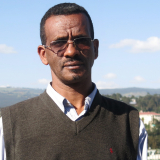The key social protection instrument in Ethiopia is the Productive Safety Net Program (PSNP) public works scheme. The The PSNP is a large national social safety net program that provides direct income to poor households primarily through participation in public works scheme, in addition to unconditioned direct support to poor households who are unable to participate in public works. The program aims to reduce the risk exposure of poor households and build their long-term resilience.
This study will evaluate Ethiopia’s PSNP in terms of its effectiveness to reduce ex-ante vulnerability to food insecurity. Examining gender differential impact of PSNP on reducing vulnerability to food insecurity is vital provided that female-headed families have lower incomes, less access to the job market, and fewer assets than their male counterparts. As in previous studies the gender differential impact of the program among male and female headed households is not well considered, this study aims to fill this gap.
The proposed research aims to improve understanding of the role Ethiopia’s Productive Safety Net Program (PSNP) in reducing ex-ante vulnerability to food insecurity and how the benefits derived from PSNP are gender sensitive.
In this study, we analyze the participation in productive safety net program and its impacts on household’s ex-ante vulnerability to food insecurity. The study also explores the differential impact of the program among men and female-headed households. Specifically, the proposed study has the following objectives:
- to understand the effect of participation on PSNP on household vulnerability to food insecurity
- to examine the heterogeneous impact of PSNP on household’s ex-ante vulnerability to food insecurity among male and female headed households
- to suggest policy measures which help informed policy/decision making processes on social protection under changing climate conditions.
This project will provide objective evidence or empirical support on the role of PSNP in reducing future food insecurity, which in turn contributes to the policy debate on the need of social protection programs.


